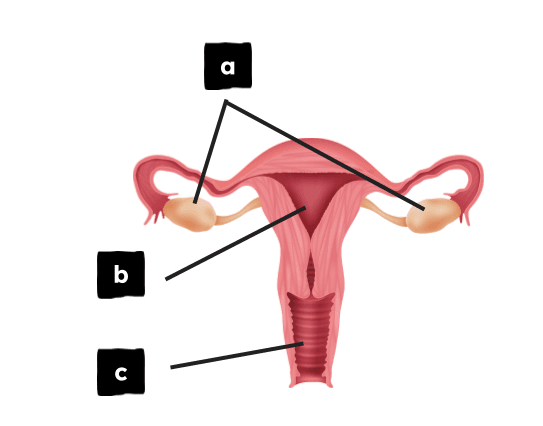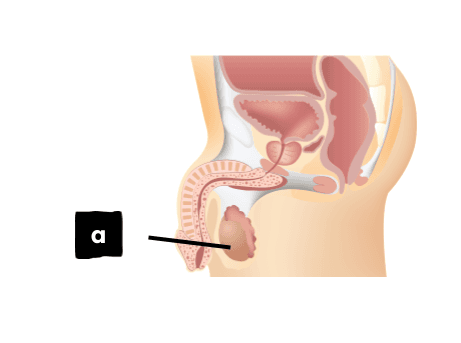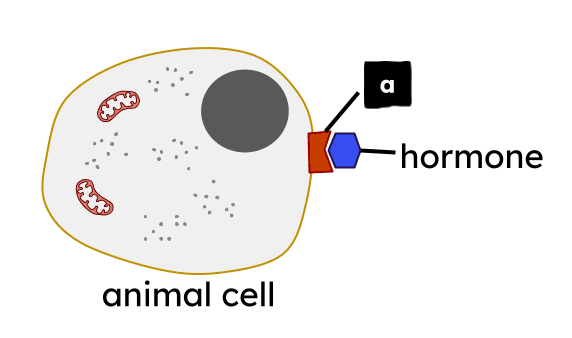Myths about teaching can hold you back
- Year 11
- AQA
- Higher
Hormones: puberty, the menstrual cycle and the menopause
I can explain the role of hormones in controlling puberty, the menstrual cycle and the menopause in humans.
- Year 11
- AQA
- Higher
Hormones: puberty, the menstrual cycle and the menopause
I can explain the role of hormones in controlling puberty, the menstrual cycle and the menopause in humans.
These resources were made for remote use during the pandemic, not classroom teaching.
Switch to our new teaching resources now - designed by teachers and leading subject experts, and tested in classrooms.
Lesson details
Key learning points
- Hormones are chemicals that are made and secreted by groups of specialised cells called glands.
- Hormones are transported around the body in the blood plasma, and detected by receptors on cells and tissues.
- During puberty, hormones cause maturation of the sex organs and development of secondary sexual characteristics.
- Hormones control the menstrual cycle in adult human females, by causing ovulation and menstruation.
- Decreases in hormone levels in older human females cause the menopause, after which the menstrual cycle stops.
Keywords
Hormone - a chemical messenger secreted by glands and carried in the blood plasma
Gland - a group of specialised cells that secrete hormones
Puberty - the process of physical changes that lead to sexual maturity
Ovulation - the process of an egg being released from an ovary
Menstruation - the process of the uterus lining breaking down
Common misconception
Hormones are only released in the brain and control the mood.
Hormones control many processes in the body and are secreted from many glands. Those involved in puberty and the menstrual cycle have physical effects that may also impact on mood.
To help you plan your year 11 biology lesson on: Hormones: puberty, the menstrual cycle and the menopause, download all teaching resources for free and adapt to suit your pupils' needs...
To help you plan your year 11 biology lesson on: Hormones: puberty, the menstrual cycle and the menopause, download all teaching resources for free and adapt to suit your pupils' needs.
The starter quiz will activate and check your pupils' prior knowledge, with versions available both with and without answers in PDF format.
We use learning cycles to break down learning into key concepts or ideas linked to the learning outcome. Each learning cycle features explanations with checks for understanding and practice tasks with feedback. All of this is found in our slide decks, ready for you to download and edit. The practice tasks are also available as printable worksheets and some lessons have additional materials with extra material you might need for teaching the lesson.
The assessment exit quiz will test your pupils' understanding of the key learning points.
Our video is a tool for planning, showing how other teachers might teach the lesson, offering helpful tips, modelled explanations and inspiration for your own delivery in the classroom. Plus, you can set it as homework or revision for pupils and keep their learning on track by sharing an online pupil version of this lesson.
Explore more key stage 4 biology lessons from the Hormones and human reproduction unit, dive into the full secondary biology curriculum, or learn more about lesson planning.

Equipment
Content guidance
- Depiction or discussion of sensitive content
- Depiction or discussion of sexual content
Supervision
Adult supervision required
Licence
Prior knowledge starter quiz
6 Questions
Q1.What does the endocrine system do?
Q2.Match the part of the female reproductive system to its name.

ovaries
uterus
vagina
Q3.What is a?

Q4.Match the gamete to its description.
are prodced by males in the testes.
are released by females from the ovaries.
Q5.What word is used to describe the changes a person goes through to become sexually mature?
Q6.Put these stages of development in right order.
Assessment exit quiz
6 Questions
Q1.Which of the following are true?
Q2.What is a?

Q3.Which of the following only occur in males?
Q4.When discussing the menopause, who is incorrect?






